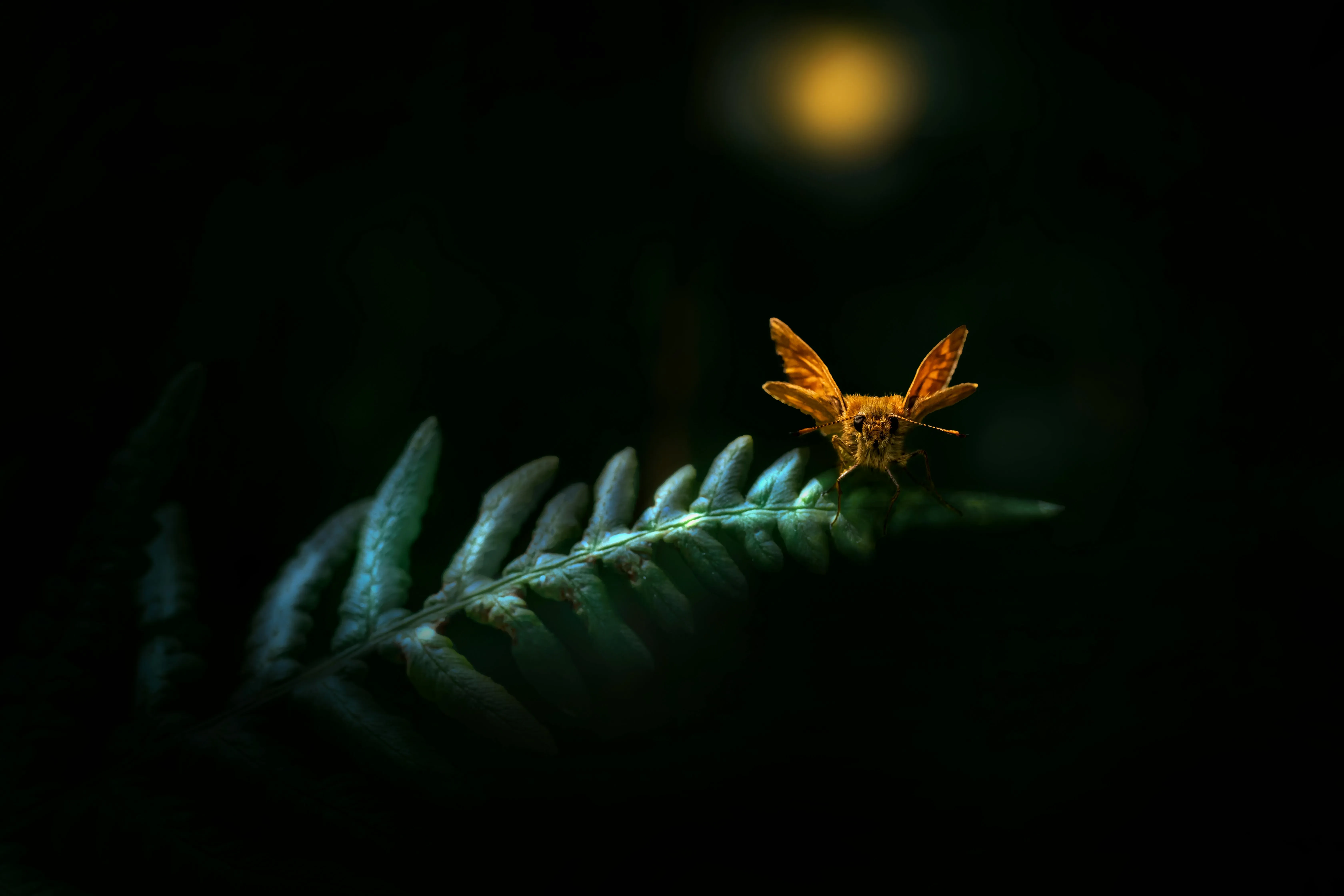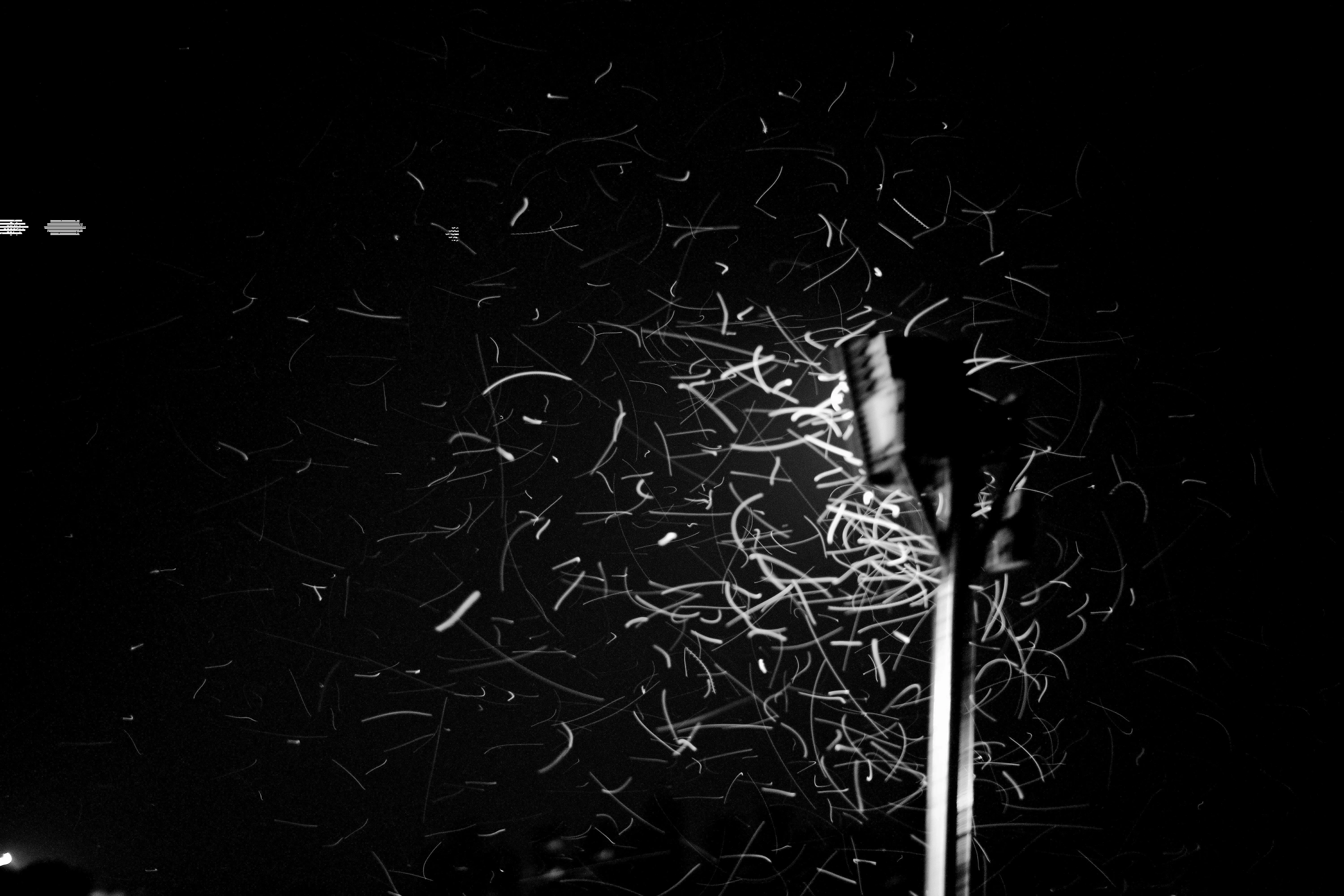Do LED Lights Attract Bugs? Find Out If Green, Red, Blue Lights Keeps Insects Away
LED lights have become a popular choice for both outdoor and indoor lighting, praised for their durability and energy efficiency. But do LED lights attract bugs? LED lights don’t emit as much ultraviolet (UV) light as incandescent bulbs, but certain colors and wavelengths can still attract bugs.
Our guide will help you understand how different types of light affect bug behavior, with insights into selecting the most effective options to reduce bug attraction.

Key Takeaways
- LED lights are different from traditional bulbs when it comes to bug attraction. Generally, they emit less UV light and heat, making them less appealing to bugs.
- Certain colors in the LED spectrum, like blue and white, may still attract insects as they are visible in the creatures’ light spectrum.
- Select LEDs that emit colors outside of insects’ typical detection range, like red or yellow, to help reduce bug attraction.
- We supply high-quality LED neon signs that can be designed in a range of colors, offering a practical and eco-friendly way to illuminate environments without attracting bugs.
Table of contents
-
Do LED Lights Attract Bugs?
-
Why Do LED Lights Attract Bugs?
-
Are Bugs Attracted To LED Lights?
-
What Color LED Lights Attract The Least Bugs?
-
Which Outdoor LED Lights Are Least Likely To Attract Bugs?
-
Are LED Lights Killing Insects?
-
How To Stop LED Lights From Attracting Bugs
-
Do LED Lights Attract Bed Bugs?
-
Do LED Lights Attract Spiders?
-
Can LED Lights Repel Mosquitoes?
Do LED Lights Attract Bugs?
All lights have the potential to attract bugs, as it is in the nature of various insects to move towards light. However, LED lights are typically less appealing to insects than incandescent bulbs. This is because LEDs emit little to no UV light and they give off very little heat, both of which are known to attract insects..
It’s important to note that this doesn’t mean LEDs are completely bug-proof. The color and wavelength of the light also play an important role. For instance, cool white and blue-toned lights are most likely to attract bugs, whilst warm tones like yellow or red are less likely to.
When you design custom neon flex signs with us, you can choose from a range of colors. If you really don’t want to attract bugs, choose our LED signs in warmer tones to reduce the risk of bug attraction.

Why Do LED Lights Attract Bugs?
The things that primarily attract bugs to light are the wavelengths and heat emitted. Neon LED lights are exceptionally safe because they emit very little heat. Traditional incandescent lights, meanwhile, emit a lot of heat, alongside a broad spectrum of light that includes UV rays. This results in bugs being drawn in.
The light produced by LEDs has more specific wavelengths, so they are usually less appealing to insects. Even so, some LED lights still attract bugs if they are in the blue or white spectrum. The visual range of insects makes them sensitive to UV and blue light, so specific colors can still draw certain bugs
Do LED Lights Attract Bugs At Night?
LED lights are generally less attractive to bugs at night compared to traditional lights. Nighttime bug activity increases around lights that emit a combination of UV rays and heat, which are minimal in the light from LEDs.
As mentioned, bugs may still be drawn to blue and cool white LEDs, but warm-colored LEDs like yellow and red are less attractive. If you want to completely remove the risk altogether, consider swapping to custom vinyl banners and avoiding illumination entirely.
Light intensity and color make a difference to bug attraction at night. Thus, while some LED lights may attract bugs, the lower temperatures and focused emissions tend to reduce nighttime attraction. This can make them more attractive than certain other lighting options.
Make a statement with a unique design that's all your own
Light up your life with our custom LED neon signs!
Order now and let us bring your vision to life
Are Bugs Attracted To LED Lights?
Certain bugs may still be attracted to LED lights, but the light’s color temperature and wavelength will have an impact on the level of attraction. Bugs are drawn to natural moonlight, so certain light features will attract them, such as:
- A cool color temperature
- Blue tones
Conversely, warm-toned LEDs like yellow and red are not as visible to insects, so they are less likely to attract them. LED lights emit minimal UV and infrared radiation, so they are considerably less appealing to bugs than incandescent or fluorescent lights.
There is no escaping the fact that LED lights will still attract some bugs, particularly if they emit cooler colors and are left on outdoors at night. But they tend to be less attractive than traditional lighting.
What Bugs Are Attracted To LED Lights?
There are certain types of bugs that are likely to be attracted to LED lights that have a cool white or blue hue. The ones you are most likely to see include:
- Moths
- Flies
- Beetles
These bugs are naturally drawn to UV light and cooler wavelengths due to their resemblance to natural moonlight, which they use to navigate in the dark. Though LEDs emit minimal UV light, they can still attract some bugs, particularly types that are more sensitive to visible wavelengths.
Generally speaking, LEDs are less attractive than incandescent lights. However, any cool-toned LED can still draw insect activity. If you want lighting that is less likely to attract bugs, opt for LED signs than emit warmer hues to minimize visibility.
What Color LED Lights Attract The Least Bugs?
When you are designing custom LED signs for outdoor use, it is worth considering light colors that are less likely to attract bugs. This way, you will not get so much intrusion from unwelcome insects that are confused by your lighting solutions.
The hues that are least visible to insects include:
- Reds
- Yellows
- Oranges
With their warm color temperature, they emit longer wavelengths that are less visible to bugs compared to cooler colors like blue and white. These light colors emit wavelengths that many bugs can detect, so they are more likely to attract insects.
Research has shown that insects are least attracted to lights with longer wavelengths and less UV light content. Thus, red, amber, or yellow LED lights should significantly reduce bug presence in both indoor and outdoor spaces.
Do Red LED Lights Attract Bugs?
In studies about insect behavior around artificial lighting, monochromatic red light has repeatedly proven minimally attractive to light-attracted insects. Red lights are among the least attractive to bugs, as insects cannot easily see light in the red wavelength. Unlike blue or white hues, red LEDs don’t mimic the natural light spectrums insects use to navigate at night.
Another thing worth noting is that red lights emit minimal UV radiation, which makes them even less attractive to bugs. The wavelength of red light is beyond the visual spectrum for most insects, so it is a good choice if you want to limit bug presence.
Use red LEDs to enjoy a pleasing illumination with minimal insect incursion. They are a good choice for outdoor and indoor use.
Do Green LED Lights Attract Bugs?
Green LEDs tend to attract fewer bugs than blue or white lights would, but you may find that they still attract some insects. Green light falls within the visible range for many bugs, though its UV wavelength emission is still short of that which bugs prefer.
Research suggests that, while green light is less attractive than blue or white, it is not as effective as red or yellow in the goal of reducing bug attraction. Green LEDs can be a good option if it is a color you really need, or if red or yellow is not suitable for a given area. But these colors may still attract a moderate amount of insects, particularly those that are sensitive to green wavelengths.

Stand out from the crowd with a one-of-a-kind design
Illuminate your world with our custom LED neon signs!
Order now and let us help you make a statement
Make Your Custom Neon SignsWhich Outdoor LED Lights Are Least Likely To Attract Bugs?
Outdoor LED lights in warmer tones, like yellow, amber, or red, are less likely to attract bugs. The longer wavelengths they emit are harder for insects to see, so the likelihood of bug activity is lower. This is particularly helpful around entryways and windows to avoid drawing flying insects into buildings.
Low-intensity LEDs with minimal UV emissions are also helpful in decreasing bug attraction. It might be helpful to position outdoor lights away from windows and use fixtures that direct the light downward. Our laser cutout backlit lightbox signs limit light emission to certain directions, so they may help reduce bug attraction.
For homeowners, we recommend selecting warm-colored LED options designed for outdoor use. This will enable you to enjoy well-lit outdoor spaces with fewer bug incursions.
Are LED Lights Killing Insects?
The shift to LED lighting is believed to have limited impact on insect populations compared to traditional lights. Incandescent and other UV-heavy lights are notorious for attracting and harming many insects, but LEDs emit minimal UV light and heat, so their direct attraction to bugs is limited.
LED lighting is generally thought to be less harmful, but it can still disturb nocturnal insects if used excessively outdoors. This is a concern with the ongoing shift towards eco-friendly LED street lights. LEDs don’t directly kill insects, but widespread artificial lighting impacts insect behavior, reproduction, and natural cycles.
You can help by choosing LED lights in warmer color tones and minimizing outdoor lighting intensity to help protect insects against potential harmful effects. Though it is important to clean neon signs as part of their maintenance, you can still make sure their colors and brightness are optimized for minimal insect attraction.
Create a design that's uniquely yours
Brighten up your space with our custom LED neon signs!
Order now and let us help you add a pop of color
How To Stop LED Lights From Attracting Bugs
The conclusion of a large-scale study in the UK was that LED streetlights reduce insect populations by as much as 50%. These bright, white-colored LED lights are thought to be directly responsible for a decrease in moth caterpillars, as female moths lay fewer eggs where these lights are present.
To reduce bug attraction around LED lights, choose warm-colored tones like yellow or red. Here are some other tips that might be helpful:
- Consider motion-activated lighting to minimize prolonged illumination.
- Place lights away from windows and entryways to reduce insect gatherings.
- Place screens around lighted areas.
- Incorporate natural bug repellents like citronella.
These steps could help discourage bugs from lingering in certain areas. Also, try to avoid bright, blue, or white LEDs in outdoor settings, as these are attractive to insects. By making these adjustments, homeowners and businesses can enjoy LED lighting without excessive insect activity.
Do LED Lights Attract Bed Bugs?
Bed bugs are not drawn to LED lights. Generally speaking, they are drawn to body heat and carbon dioxide rather than light. Since LED neon signs don’t get hot, they are even less likely to attract bed bugs.
Unlike many other insects, bed bugs are not phototactic, which means they don’t instinctively move towards light sources. Thus, LED lights have no particular effect on bed bug behavior, so they will not attract them.
However, LED lights in bedrooms and living areas may attract other insects, which might serve as prey for unwanted spiders. If you are concerned about a bed bug infestation, consider addressing temperature, cleanliness, and physical barriers that will help stop them getting in.
Create a unique design that captures the essence of your love story
Add a touch of romance to your special day with our custom LED neon signs!
Order now and let us help you make your wedding day unforgettable.
Make Your Custom Neon SignsDo LED Lights Attract Spiders?
Spiders are not particularly attracted to LED lights. However, you may find that they are drawn to areas where LED lights are present, as those lights might attract other bugs that spiders prey on.
If you work with us to make custom LED lights, colors with a cooler white or blue hue are likely to attract flying insects. Where they gather, you may see an increase in spiders that are looking for a reliable food source.
If you want to reduce spider presence, consider the following:
- Choose warm-colored LED lights that won’t attract insects.
- Avoid leaving lights on for prolonged periods.
- Keep outdoor lighting facing away from entry points.
- Use downward-facing light fixtures.
If you can follow these simple directions, you are likely to deter both insects and spiders from gathering near windows, doors, and other areas in your home.

Can LED Lights Repel Mosquitoes?
There is no strong evidence that LED lights are likely to repel mosquitoes, but you are less likely to attract them if you design custom aesthetic neon signs in colors like red, yellow, and amber. Mosquitoes tend to move towards UV light and warmer body temperatures. Thus, LEDs with little to no UV emission and very little heat production are unlikely to attract them.
We don’t recommend using LEDs as a primary mosquito repellent, however. If you want to control mosquito numbers effectively, we recommend dedicated repellents such as:
- Citronella
- Mosquito traps
- Screen barriers
Used in combination with warm-colored LEDs, these measures are likely to create a comfortable outdoor environment that doesn’t attract mosquitoes or other bugs.
Frequently Asked Questions About Do LED Lights Attract Bugs
Do LED Lights Attract Bugs At Night?
Yes they do, but they will attract fewer bugs than traditional lighting due to their minimal UV emissions and low heat output. Choose warm-colored LEDs to further reduce bug attraction.
What Color LED Lights Attract The Least Bugs?
Yellow, red, and orange LED lights are least likely to attract bugs. This is because they have longer wavelengths which are generally less visible to bugs than blue or white lights.
